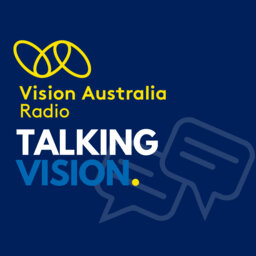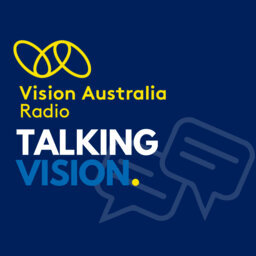Talking Vision 765 Week Beginning 27th of January 2025
This week we highlight All Abilities Day at the Australian Open which took place on 21 January at Melbourne Park, featuring world #1s Grace Hobbs and Ross Patterson, who caught up with Sam to chat about their experiences.
Then after Grace and Ross we hear from Liz Dalakouras, the editor of Vision Australia's fortnightly newsletter For Your Information (FYI), and Frances joins the show for a Reader Recommended.
In 1 playlist(s)
Talking Vision by Vision Australia Radio
Vision Australia Radiothon is on now. Donate via www.varadio.org and make a tax deductible donation …Social links
Follow podcast
Recent clips

Talking Vision 821 Week Beginning 2nd of March 2026
27:47

Talking Vision 820 Week Beginning 23rd of February 2026
27:55

Talking Vision 819 Week Beginning 16th of February 2026
28:59
 Talking Vision by Vision Australia Radio
Talking Vision by Vision Australia Radio